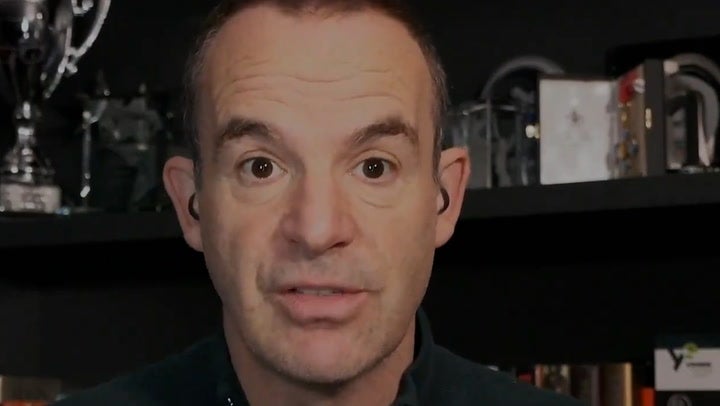Martin Lewis is right: the energy price cut is welcome – but not quite as good as it looks
While some households will see their bills fall by more than 12 per cent, domestic energy costs are still at an all-time high – and they don’t look likely to come down any time soon, writes Sean O’Grady


A few weeks ago, the BBC’s Newsnight programme conducted a focus group of disillusioned voters who were mostly pretty negative about our leading politicians. Asked who, in an ideal world, they’d like to have as prime minister, quite a few volunteered the name “Martin Lewis”, the well-known founder of Money Saving Expert and consumer champion.
Of course, Lewis has no political ambitions (so far as we’re aware), and even for a man of his adamantine, not to say saintly, integrity, political office might force him into the kinds of messy compromises ministers have to make. Far better to have him as the watchdog-in-chief, the man who regulates the regulators – such as Ofgem, which has decided to reduce the price of energy.
The average household will see its bills capped (for average usage – it’s not an unlimited buffet) at £1,690 from April, down some £238 for the average dual-fuel household, a cut of 12.3 per cent.
Good news, undoubtedly – but there is, as Lewis points out, some nastiness in the detail.
Standing charges, for example, which are actually going up by about 10 per cent and will now be more than £300 a year. Clearly, these are unrelated to how much gas and electricity people use, and provide no incentive to cut down on energy usage – a poll tax, in effect, as Lewis says.
The justifications given are the rise in distribution costs (like other industrial costs) and that it is a way to deal with the big increase in arrears – with most consumers now paying for those households who find themselves unable to cope with the price hikes and the scaling back of government assistance.
A rather bigger mystery is why – when global wholesale gas prices are down to the levels they were at in mid-2020, at the height of the pandemic – our domestic bills are still about 60 per cent above where they were before the energy crisis caused by Vladimir Putin’s invasion of Ukraine. That event, two years ago, caused a huge spike in hydrocarbon prices (we saw it at the petrol pumps, too), but this has since subsided a good deal, presumably because he’s been busting sanctions, other producers have opened the taps, and the mild recession has chipped off some demand.
It’s all in dollar terms, not sterling, but that still doesn’t explain the gap between wholesale and retail costs – one that has been growing for many months now.
Of course, the other point is to ask ourselves precisely why brilliant and public-spirited people such as Lewis are so essential to keeping the cost of heating and lighting our homes under control. The answer is that the competition engendered by the privatisation and liberalisation of the energy markets more than three decades ago may have conferred some benefits, but there have also been drawbacks, and the “competition” has merely resulted in a powerful oligopoly.
New entrants, albeit offering some recklessly striking cheap deals, have more or less disappeared since the price hikes and the caps made them irrelevant, because the cap is the “standard” tariff nowadays, with little room for price cutting. Yet, as Lewis’s work shows over many years, picking the “right” tariff from the bewildering array of deals on offer, all with strings attached, is an impossible task. It turned out that some of the price-comparison sites were taking backhanders, and weren’t what they were cracked up to be.
Even if you have a shrewd idea of your own consumption, you have to take a view on a tracker or a fixed tariff over various timescales. When do you think, therefore, that the war in Ukraine will end? Will Putin survive? What will happen in Iran in the next few years? Opec policy? Climate targets?
And, of course, cheap switching offers were made at the expense of customers who stayed with their existing supplier; and if you forgot to switch again when the initial deal ran out, you got diddled. Even the savvy students of Martin Lewis could get caught out.
I have to say, I feel increasingly nostalgic for the time when the gas board and regional electricity utilities, all state-owned monopolies, just sent you a bill and you paid it. That was it. No shopping around. No confusion. Standing charges were fairly nominal, and while the gas and electric weren’t always cheap, there was enormous certainty year to year about the costs. Everyone was on the same tariff, and the bills were subject to ministerial oversight and national debate.
Fuel and light (and water) were utilities, supplied by the state because they were essentials. If the country wanted to keep bills down for people, then any deficits were made up via progressive taxation.
In fact, we have something like that now, with all the increasing regulation; but Ofgem is playing a constant cat-and-mouse game with the energy retailers, with Lewis and his peers keeping a watchful eye on Ofgem’s failings. We should ask ourselves if relying quite so heavily on Lewis to drive energy pricing is really the best way to organise things.
Join our commenting forum
Join thought-provoking conversations, follow other Independent readers and see their replies
Comments
Bookmark popover
Removed from bookmarks